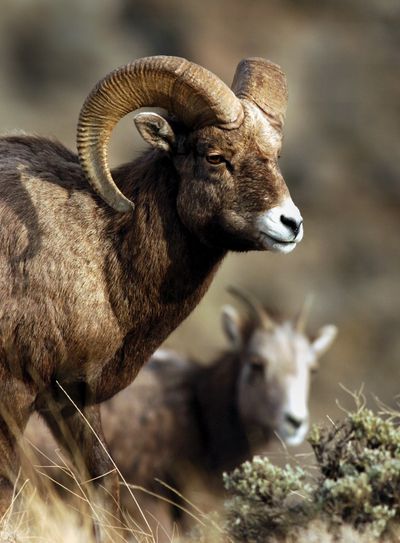Bighorn plan sought
Critics say new law endangers collaborative efforts at protection

LEWISTON – Idaho Gov. Butch Otter is working to revive a panel on bighorn sheep, which sought to protect the ranching industry while looking for ways to keep bighorns away from domestic sheep.
Domestic sheep have been blamed for spreading deadly diseases to bighorns.
But the Nez Perce Tribe, Idaho Conservation League and the Wild Sheep Foundation dropped out of the Idaho Bighorn/Domestic Sheep Working Group when Otter signed a law the groups said undermined the process and put bighorns at risk.
The law requires the Idaho Department of Fish and Game to work with producers to develop a plan to keep bighorns away from domestic sheep while preserving grazing on federal land. State officials don’t manage federal land, but they do manage wildlife, including bighorns.
The law also calls for Fish and Game to certify as acceptable any risk of disease transfer to bighorns remaining after the plan is put in place.
Earlier this month, the agency approved agreements with 11 sheep producers to prevent domestic sheep from coming in contact with wild bighorn sheep.
The law compromises the collaborative process beyond repair, said Samuel N. Penney, chairman of the Nez Perce Tribe.
“Legislating the outcome and codifying the Department of Fish and Game’s policy on bighorn sheep management precludes the need and leaves no room for future collaborative efforts,” he said.
Rick Johnson of the Idaho Conservation League also said there was no room for negotiations with the new law in place.
But Otter spokesman Jon Hanian said state officials have been inviting groups back to the working group, which was made up of state officials, sheep ranchers, sportsmen and environmental organizations.
Neil Thagard of the Wild Sheep Foundation, based in Cody, Wyo., said his group has decided to return to the talks.
“We said, ‘We are better off at the table than away from the table,’ ” Thagard said. “We are going to go to the table and see what we can do to work on those wild sheep/domestic sheep issues.”